Incheon Airport Set To Become A Premier Global Megahub With Phase 4
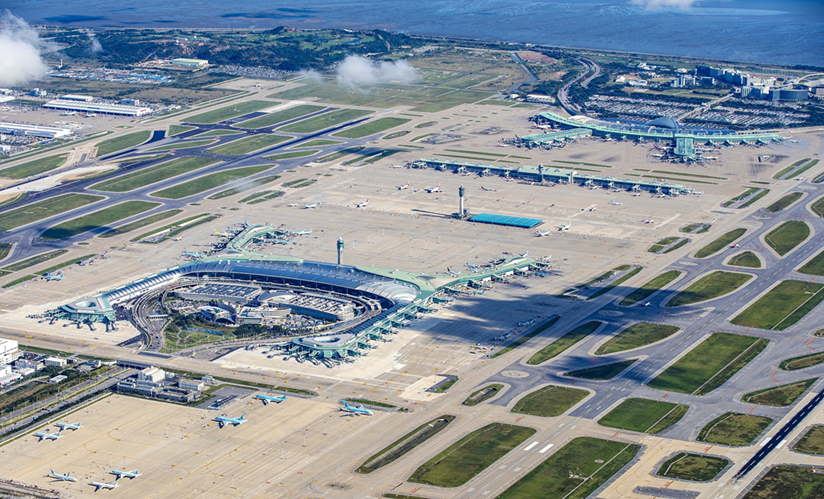
Incheon International Airport Set to Ascend as One of the World’s premier Megahubs with Phase 4 Expansion
Incheon International Airport embarked on a transformative journey with its ambitious Phase 4 construction project. Spanning November 2017 to October 2024, this seven-year endeavor represents a substantial investment of 4.8 trillion won (approximately $3.5 billion) to double the size of Terminal 2.
This major airport infrastructure project includes the expansion of the second passenger terminal and the construction of a fourth runway. After successfully completing the Operational Readiness and Airport Transfer (ORAT) phase, which involved three extensive test operations, the project is set to begin full operations on 3rd December.
The expansion will increase Incheon International Airport’s annual passenger capacity by 38%, from 77 million to 106 million. Cargo capacity will grow from 5 million to 6.3 million tons, and the number of annual flights is projected to rise from 500,000 to 600,000. With these advancements, Incheon Airport is poised to secure its place among the world’s top three airports in international passenger throughput.
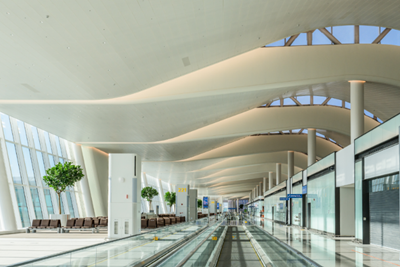
The heart of the Phase 4 project lies in integrating next-generation technologies to transform the airport into a state-of-the-art, digitally intelligent hub. Travelers can look forward to smart check-in and security services that will dramatically reduce processing times, allowing for a seamless journey through the terminal.
The introduction of an apron digital control system, powered by AI (Artificial Intelligent), AR (Augmented Reality), and digital twin technology will significantly boost operational efficiency by minimizing aircraft delays. In addition, advanced optical character recognition (OCR) and automatic tag reading technologies have been integrated into the baggage handling system (BHS), significantly improving the accuracy and performance of baggage tag reading.
The Phase 4 project also blends cultural and artistic experiences with advanced technology, providing travelers with a distinctive K-culture experience. Two stunning outdoor gardens — the Classic and Contemporary Korean Gardens — located airside, offer passengers a refreshing K-culture experience as they wait for flights. In the Korean garden on the east side, the traditional pavilion ‘Seungjaejeong’, originally from Chaggyeonggulg Palace in Seoul, has been recreated, surrounded by pine trees, bamboo, stone walls, and flowing water, evoking the serene atmosphere of Korea’s traditional landscapes.
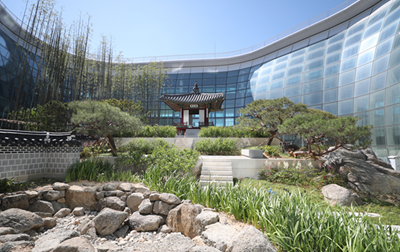
Art installations will play a key role in shaping Incheon Airport’s new identity. A key highlight is a kinetic sculpture installed on the ceiling of the departure hall, designed and created by the Incheon International Airport Corporation. Using AI algorithms, it shows images of an eagle flying in the sky, a tiger walking in the forest, and a whale swimming in the sea. Additionally, a groundbreaking media installation in the Arrivals Hall will be the first of its kind to showcase real-time flight information through artistic visuals, enhancing the overall passenger experience.
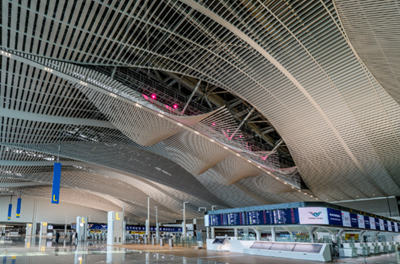
Additionally, Incheon Airport is set to embrace the future with the introduction of autonomous transport vehicles, designed to assist passengers with reduced mobility and those needing to reach departure gates quickly. These vehicles will make long-distance travel within the airport easier and more convenient for all travelers.
Since opening its first phase in 2001, Incheon Airport has continuously evolved, and is now entering its “second era” with an ambitious plan to handle 100 million passengers annually. The completion of the Phase 4 project will solidify Incheon’s position as a global megahub, enhancing flight operations and expanding passenger facilities.
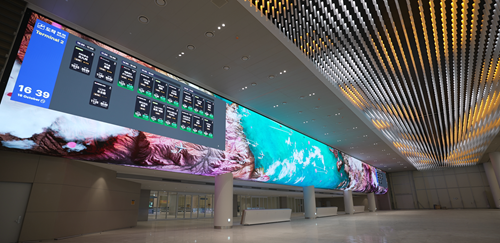
Incheon Airport strives to deliver world-class services by seamlessly integrating cutting-edge technology, cultural richness, and sustainable practices. This transformation aims to redefine Incheon as more than just an airport—it becomes a destination in its own right. Whether you're stopping over or embarking on a journey, Incheon Airport promises to captivate and inspire every traveler.
For more information, visit us at: https://www.airport.kr/sites/ap_en/index.do





